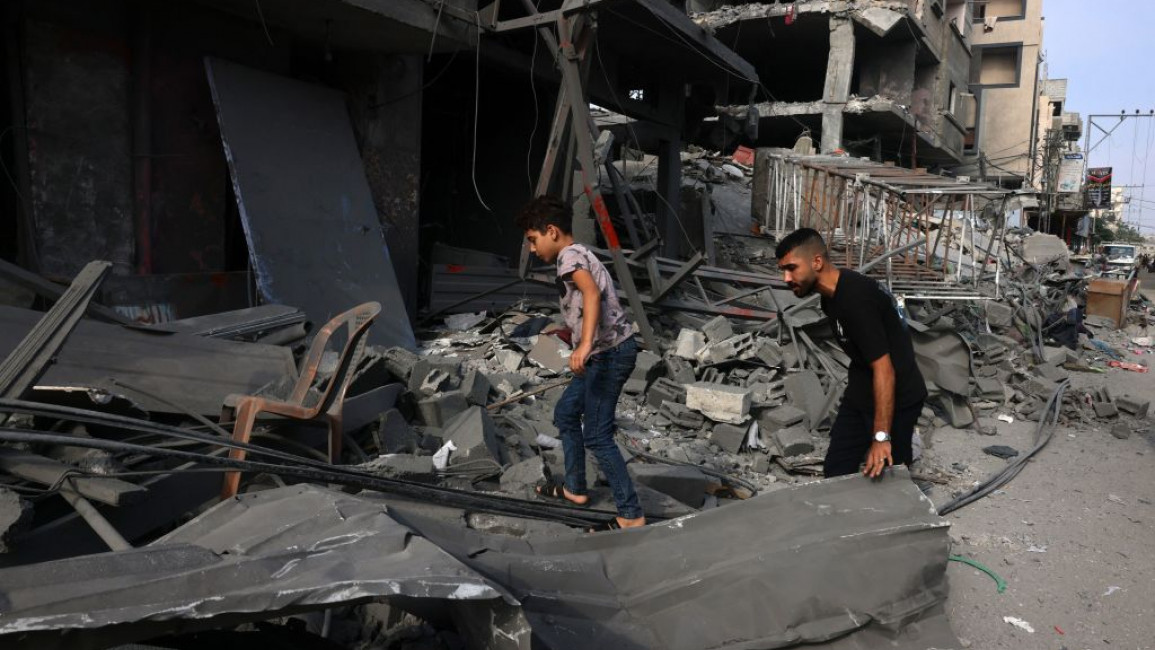Amnesty warns Gaza civilians at 'unprecedented risk' amid communication blackout
Amnesty International warned civilians in Gaza were at "unprecedented risk" on Friday amid a communications blackout and intensified attacks on the besieged Palestinian enclave.
The almost full blackout came as the Israeli military redoubled its deadly bombardment of the strip and said it was "expanding ground operations" there.
Amnesty said it was Israel that had implemented the communications cutoff. Erika Guevara-Rosas, a senior director at the rights group, called on Israel to end indiscriminate and disproportionate attacks that have already killed over 7,300 people, including more than 3,000 children.
There were reports of new massacres on Friday night and Saturday morning, with Palestinian medical sources saying that at least 25 people had been killed in the central Gaza Strip, with scores more trapped under rubble.
"Palestinian civilians are already besieged in the occupied Gaza Strip and are now also trapped in a complete communications blackout, with data from internet monitoring networks reporting signals rapidly failing as air and ground strikes reportedly intensify, in particular in the northern and central part of the strip," Guevara-Rosas said in a statement.
"Internet and telecommunications infrastructure must also be restored as a matter of urgency, to allow rescue operations amidst Israeli pounding airstrikes and expanding ground operations.
"At Amnesty International we have lost contact with our colleagues in Gaza, and other human rights organisations have found it increasingly challenging to document violations due to the intensity of Israel’s attacks and restrictions on communications."
Guevara-Rosas said the communications blackout would make it harder to obtain vital information and evidence about rights violations and war crimes being perpetrated against Palestinian civilians in Gaza, and to hear directly from those experiencing the abuses.
Deborah Brown, senior technology and human rights researcher at Human Rights Watch, said the blackout risked giving cover for "mass atrocities" and "contributing to impunity for human rights violations".
"The near-total telecommunications blackout in Gaza cuts off 2.2 million people’s access to the outside world and prevents people inside Gaza from communicating with loved ones and accessing life-saving medical and other essential services," she said in a statement.
Israel's devastating bombing campaign against Gaza has so far killed more than 7,300 people. Hamas's surprise 7 October attack inside Israeli territory killed over 1,400 people.





